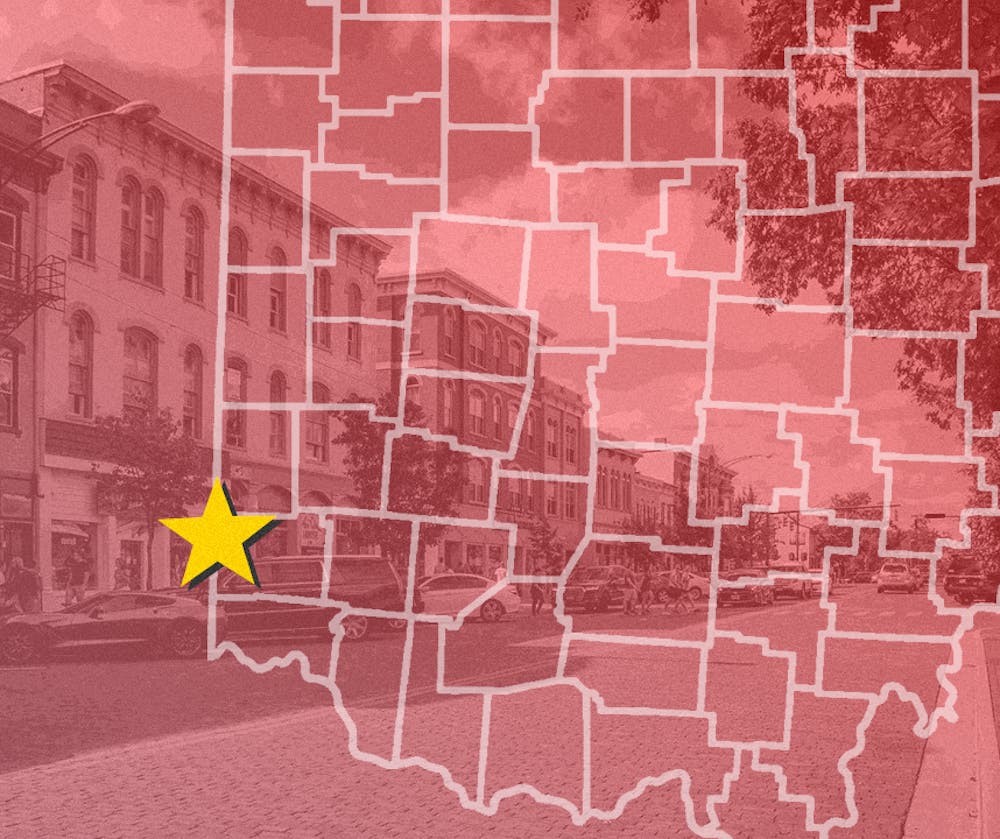Oxford city officials are prioritizing initiatives in three areas this year: affordable housing, economic development and climate sustainability. They announced these goals after a Feb. 12 work session.
The goals carried over from the city’s 2020 agenda, which included strengthening Oxford’s relationship with Miami University and improving public services like public safety and water treatment.
“I’m excited about [this year’s priorities],” Mayor Mike Smith said. “We have an incredible city staff, and we trust in them a lot. We know there’s gonna be obstacles. Our revenues are down because of the pandemic, so there may be revenue issues, but at least we’re gonna move forward.”
In 2020, Oxford hired Bowen National Research (BNR) to look into the housing market in the city. Patrick Bowen, president of BNR, presented a housing needs assessment to City Council on Feb. 16.
BNR found that Oxford faced a critical need for low-income housing that costs less than $999 a month by 2025, as well as a high demand for upscale rentals and homes.
The report showed that Oxford has an estimated 67 homeless community members. Additionally, more than 400 residents have physical disabilities, and nearly 450 struggle with substance abuse.
Altogether, almost 1,000 of Oxford’s 21,000 residents — or nearly 5% — fall into priority groups with specific housing needs.
“This study just kind of confirmed that we don’t have affordable housing for [the] non-student population under the age of 30 years old,” Smith said. “It’s maxed out. You can be on the waiting list for years to get an affordable apartment.”
Smith said the city will consider multiple solutions to the housing shortage this year, from incentivizing developers to include low-income housing in their future projects to creating an affordable housing trust fund.
To meet the economic development priority, City Councilor Glenn Ellerbe said he hopes to keep businesses in the uptown commercial district full.
“When people go places, and they aren’t operating at least at 80% capacity or more, then it looks like a dying place,” Ellerbe said. “I don’t want Oxford to look like a dying place.”
In addition to buildings that have stood empty for years, uptown has lost multiple businesses to the pandemic such as Root Yoga and Sushi Nara. Despite the closures, Ellerbe said he hopes the city can get up to 90% commercial occupancy by the end of the year.
Enjoy what you're reading?
Signup for our newsletter
Ellerbe said Oxford relies on income tax to fund major initiatives. When the COVID-19 pandemic sent Miami students home last March and forced businesses to let go of employees, the city’s tax revenue fell.
“There are plenty of other city legislators that want to do various things,” Ellerbe said, “but those various things cost money. Unless the endeavor that they choose to embark upon is revenue neutral, that money has to come from somewhere else.”
To encourage businesses to come to Oxford and stay in Oxford, Ellerbe said it’s important to maintain a strong relationship between the local government and businesses. Since businesses drive the city’s revenue, he said he hopes to have more conversations with them in the future.
Oxford’s third priority this year, climate sustainability, is focused on expanding renewable energy sources in the area and moving toward carbon neutrality.
Councilor Chantel Raghu said the city is working on a Request for Proposals for companies to design a solar array to cover a closed landfill south of Chestnut Field. While the array won’t replace Oxford’s current energy supply, it will move the city closer to carbon neutrality.
“Last year, one of our top priorities was to pursue solar energy,” Raghu said. “[Over] the past year, myself and some of the other councilors have been working on making that a reality.”
Raghu said she also hopes to expand Oxford’s composting program, which reduces the city’s methane emissions by keeping biodegradable waste out of landfills.
Additionally, the city is working on a project entitled “Solarized Oxford” to incentivize residents to install solar panels on their houses. Raghu said by buying in bulk, residents will pay 20% less. So far, 22 residents have asked for quotes and six have signed contracts.
“We’re moving toward being carbon neutral and toward being sustainable and self-sufficient,” Raghu said. “All these [plans] hopefully over time as we keep making progress will get us there, but we’re not there yet.”




